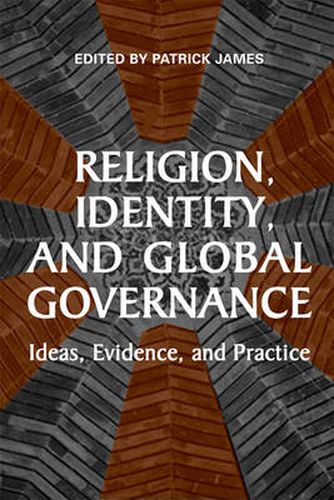Readings Newsletter
Become a Readings Member to make your shopping experience even easier.
Sign in or sign up for free!
You’re not far away from qualifying for FREE standard shipping within Australia
You’ve qualified for FREE standard shipping within Australia
The cart is loading…






In the wake of 9/11, and with ongoing wars and tensions in the Middle East, questioning contemporary connections between and among religion, identity, and global governance is an exercise that is both important and timely. This volume, edited by Patrick James, addresses essential themes in international relations today, asking how we can establish when religious identity is a relevant factor in explaining or understanding politics, when and how religion can be applied to advance positive, peace-oriented agendas in global governance, and how governments can reconsider their foreign and domestic policies in light of religious resurgence around the world.
Exploring topics such as Pope John Paul II’s Just War, the role of religious NGOs in relation to states, and religious extremism among Muslims in India, the contributors highlight the central role that religion can play in foreign policy. Taken together, these essays contend that global governance cannot and will not improve unless it can find a way to coexist with the powerful force of religion.
$9.00 standard shipping within Australia
FREE standard shipping within Australia for orders over $100.00
Express & International shipping calculated at checkout
In the wake of 9/11, and with ongoing wars and tensions in the Middle East, questioning contemporary connections between and among religion, identity, and global governance is an exercise that is both important and timely. This volume, edited by Patrick James, addresses essential themes in international relations today, asking how we can establish when religious identity is a relevant factor in explaining or understanding politics, when and how religion can be applied to advance positive, peace-oriented agendas in global governance, and how governments can reconsider their foreign and domestic policies in light of religious resurgence around the world.
Exploring topics such as Pope John Paul II’s Just War, the role of religious NGOs in relation to states, and religious extremism among Muslims in India, the contributors highlight the central role that religion can play in foreign policy. Taken together, these essays contend that global governance cannot and will not improve unless it can find a way to coexist with the powerful force of religion.